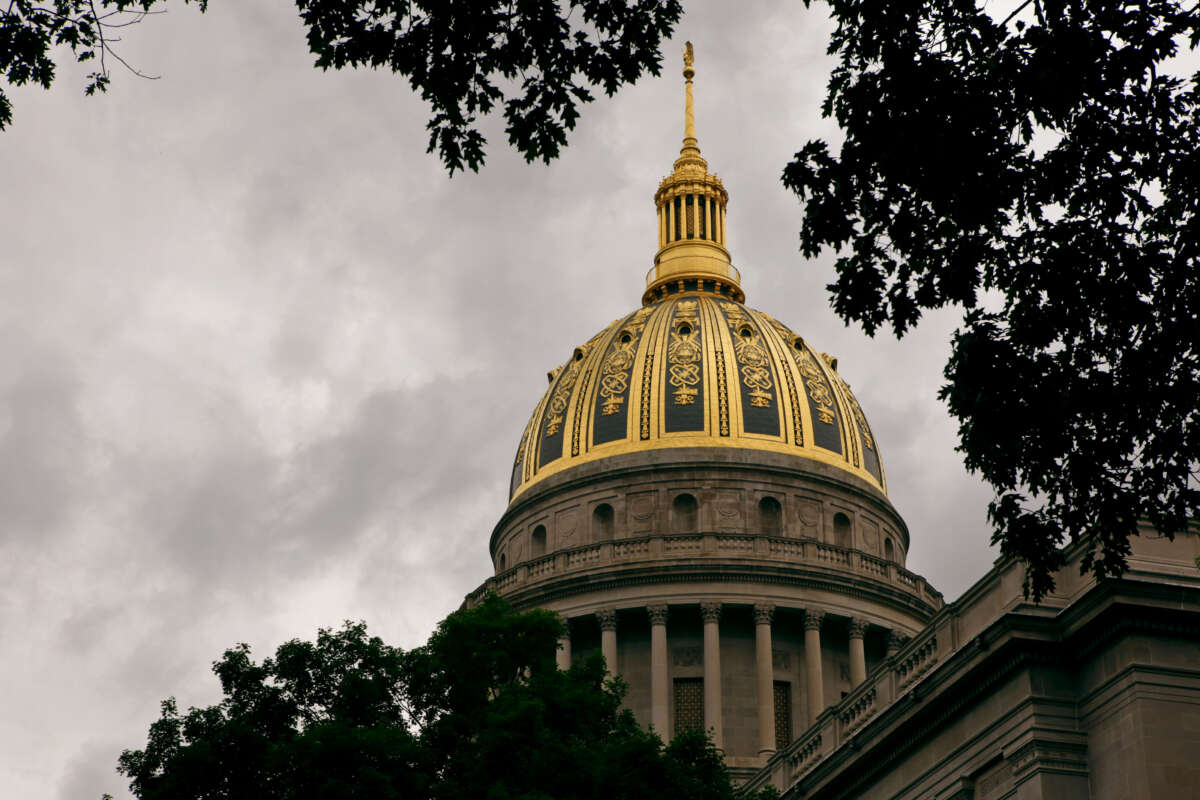Support justice-driven, accurate and transparent news — make a quick donation to Truthout today!
On January 1, West Virginia implemented a law banning transgender minors from accessing gender-affirming care like hormone therapy and puberty blockers.
The bill was signed into law in March by Gov. Jim Justice (R), making West Virginia one of 22 states across the country to restrict or ban transgender youth’s access to lifesaving health care.
“Once again, the party that tells us that it is for ‘smaller government’ and is ‘pro-life’ is blocking children from lifesaving care while attempting to ‘play doctor’ from the legislature,” Robb Livingood, a transgender attorney in West Virginia, told Truthout. “The fact that these transphobic proposals have been universally condemned by the American Psychological Association and innumerable healthcare providers means nothing to them. These hatemongers will giddily use the lives of children as their political playthings.”
Gender-affirming care has been endorsed by more than 30 leading medical organizations, and research has found that such treatment reduces depression and suicide rates for transgender youth.
“If the wellbeing of children were a factor, they would not be blocking lifesaving care. How can a child be “too young” to receive evidence-based suicide prevention? These lawmakers would rather see a dead child than a child who is alive, well, and transgender,” Livingood told Truthout.
The gender-affirming care ban is extremely unpopular. During a public hearing in February, only two out of 79 people spoke in favor of the bill, and in March, transgender advocates packed the state courthouse to protest against the ban.
“It’s time to show our lawmakers that the LGBTQ+ community of WV will not tolerate these attacks on our rights and freedoms,” Ash Orr, cofounder of the West Virginia Transgender Coalition, said on social media in March. “We will continue to organize, to care for one another, and to fight the good fight.”
In response to activist organizing, the state Senate made several modifications to the bill, including adding an amendment that allows transgender minors to receive gender-affirming care with parental consent if the child is at risk for self-harm or suicide or has been diagnosed with gender dysphoria by two or more providers.
Transgender advocates welcomed the exception but noted that many transgender youths will be unable to jump through the necessary hoops to access care. In 2022, 25 percent of children and 17 percent of adults in West Virginia were living in poverty. As a result, nearly one-fifth of all West Virginian adults do not have a personal doctor and 14.6 percent of adults in West Virginia could not afford needed health care in the past year. Additional obstacles, like a lack of health care providers who offer gender-affirming care and transgender discrimination in the health care field, make accessing gender-affirming care in West Virginia excessively difficult.
Courts are currently split on the constitutionality of gender-affirming care bans. In November, the ACLU requested that the U.S. Supreme Court rule on the issue.
“Our legislators should not interfere in the private medical choices made by families of transgender youth and their healthcare providers. In doing so, they infringe upon the fundamental rights and liberties of parents to raise and support their own children. The autonomy to make decisions regarding one’s own body should be a universal right,” Orr told Truthout.
A terrifying moment. We appeal for your support.
In the last weeks, we have witnessed an authoritarian assault on communities in Minnesota and across the nation.
The need for truthful, grassroots reporting is urgent at this cataclysmic historical moment. Yet, Trump-aligned billionaires and other allies have taken over many legacy media outlets — the culmination of a decades-long campaign to place control of the narrative into the hands of the political right.
We refuse to let Trump’s blatant propaganda machine go unchecked. Untethered to corporate ownership or advertisers, Truthout remains fearless in our reporting and our determination to use journalism as a tool for justice.
But we need your help just to fund our basic expenses. Over 80 percent of Truthout’s funding comes from small individual donations from our community of readers, and over a third of our total budget is supported by recurring monthly donors.
Truthout’s fundraiser ended last night, and we fell just short of our goal. But your support still matters immensely. Whether you can make a small monthly donation or a larger one-time gift, Truthout only works with your help.
